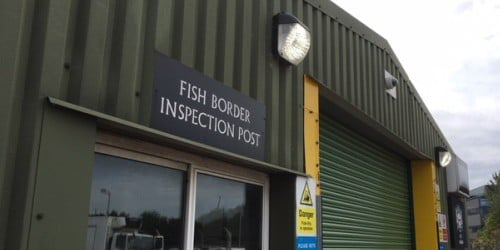
UK trade body OATA has responded to comments made by the Conservative Animal Welfare Foundation, describing them as ‘unjustified and showing a lack of proper research’ into the way live ornamental fish are transported.
A recent Fish Welfare Report from the Foundation, focusing mainly on food fish, makes passing reference to the welfare of ornamental fish in transport, stating, ‘for ornamental fish, import and transport cause serious harm as they are deprived of food and oxygen while being stored and handled roughly in small plastic containers for days at a time’.
But OATA chief executive Dominic Whitmee said: “These remarks are unjustified, ill-judged and show a surprising lack of research from this well-respected organisation.”
OATA has written to the Foundation to explain the rules governing the transport of live fish for the home aquarium industry, which are set out by the International Air Transport Association in its Container Requirements guidance.
REGULATIONS
More than 80% of the live fish for home aquariums arrive in the UK by air so businesses must comply with IATA regulations otherwise airlines would not accept the consignments. The container requirements for aquatic animals include:
> Fish must be packed in plastic bags containing a minimum of quarter water and the remaining space filled with oxygen. The fish must be fully immersed and able to swim freely, with bags then placed within an outer fully rigid container which cannot accidentally open
> Boxes must be labelled in a certain way
> Fish must be fasted for a few days prior to shipment in order to reduce excreta and subsequent ammonia formation
> Shippers must pack fish to survive unattended for at least 48 hours from time of acceptance by the airline.
“A modicum of research would reveal that the remarks made about ornamental fish are simply unjustified,” said Dominic. “Companies must comply with IATA requirements, which have been developed by experts through a rigorous process to ensure the transportation of live animals does not create welfare issues.
“We would be most concerned if CAWC was calling for fish to be fed before travel because this would have a detrimental effect on water quality and therefore the welfare of the fish in transport.
“Our industry relies on the provision of live, healthy animals so it is a priority, and indeed financially prudent, for our members to keep the fish they trade in healthy and as stress-free as possible at every stage of their journey. We hope that CAWC revises this element of its report and we are always happy to talk to organisations to help them understand the facts.”
Read the full response from OATA to CAWC at https://ornamentalfish.org/oata-responds-to-cawc-fish-welfare-report/


